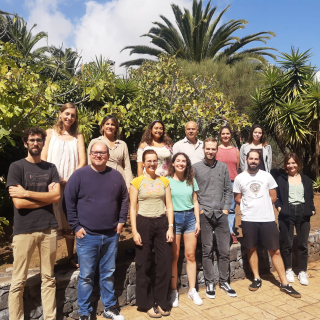Weidner, C.; Kroupa, P.; Pflamm-Altenburg, J.
Bibliographical reference
Monthly Notices of the Royal Astronomical Society, Volume 441, Issue 4, p.3348-3358
Advertised on:
7
2014
Citations
21
Refereed citations
19
Description
It has been claimed in the recent literature that a non-trivial relation
between the mass of the most-massive star, mmax, in a star
cluster and its embedded star cluster mass (the mmax -
Mecl relation) is falsified by observations of the
most-massive stars and the Hα luminosity of young star clusters in
the starburst dwarf galaxy NGC 4214. Here, it is shown by comparing the
NGC 4214 results with observations from the Milky Way that NGC 4214
agrees very well with the predictions of the mmax -
Mecl relation and with the integrated galactic stellar
initial mass function theory. The difference in conclusions is based on
a high degree of degeneracy between expectations from random sampling
and those from the mmax - Mecl relation, but are
also due to interpreting mmax as a truncation mass in a
randomly sampled initial mass function. Additional analysis of galaxies
with lower SFRs than those currently presented in the literature will be
required to break this degeneracy.
Related projects

Traces of Galaxy Formation: Stellar populations, Dynamics and Morphology
We are a large, diverse, and very active research group aiming to provide a comprehensive picture for the formation of galaxies in the Universe. Rooted in detailed stellar population analysis, we are constantly exploring and developing new tools and ideas to understand how galaxies came to be what we now observe.
Ignacio
Martín Navarro